BEYOND Tomorrow Summer Program in Asia 2016
~Japan-South Korea Youth Partnership for Public Diplomacy~
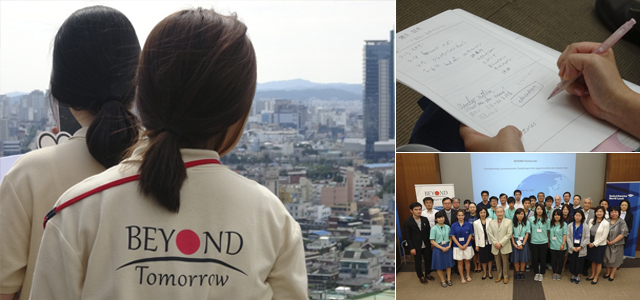
Overview
In the summer of 2016, Global Fund for Education Assistance | BEYOND Tomorrow conducted a program for dialogue for Japanese and Korean students as a first step to build a youth platform for public diplomacy across Asia-Pacific.
The program aims to cultivate global perspective and a sense of compassion for those in other countries among participating students. 11 students from Japan and 8 students from South Korea with diverse background joined the program and examined a variety of social issues including social gap, youth employment, and foreign migration together. They developed proposals and made presentations about how they could collaborate to address those issues at the end of the program.
During the program, students from both countries engaged intensively into discussions about their future. It enabled them to develop mutual trust that would be basis for further developing the constructive future between Japan and Korea.
Dates
August 16 – Orientation in Tokyo
August 17 – 24 – Asia Program (South Korea)
Participants
From Japan: 11 students from Japan (8 university students and 3 high school students) enrolled in BEYOND Tomorrow Japan Future Fellows Program selected through a rigorous selection process. Participants represent different regions of Japan and primarily be ones with limited access to global opportunities.
From South Korea: 8 students (6 university students and 2 high school students) from South Korea represent different regions of Korea. Participants were selected through an application process.
List of participants in Asia Summer Program 2016 – Japan –
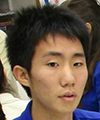 |
Kouki Ippoushi Sapporohigashi High School, Hokkaido Prefecture Kouki joined BEYOND Tomorrow in eleventh grade and discovered an environment where he learned important things that he was not able to learn elsewhere. Though he was expecting his life to become very busy studying for college entrance examinations, he felt that he wanted to live life to the fullest, and as such, decided to apply for the Fellows Program. Through his time in BEYOND Tomorrow, Kouki is looking forward to participate in international experiences and learn to become a person who can build relationships that crosses borders and cultures without prejudice. In the future, he wants to work with children, teaching them to grow to be people who can look at things with a broad perspective. |
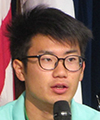 |
Kosuke Ito School of Engineering, Tohoku University (Graduate of Sendai Seiryo Secondary School) When Kosuke met a Filipino boy who grew up on the streets, he was struck at how little he knew about the realities of developing countries. Disappointed by his own ignorance, he decided that he would like to build a vocational training school for street children. Through BEYOND Tomorrow, Kosuke is hoping to develop a new perspective, where he can think beyond his role in Japan, thinking about the role of Japan in the world, and of his own role in the world. He is studying High Intensity Focused Ultrasound technology as a medical engineering major in college, and his dream is to work in helping developing countries advance. |
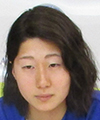 |
Honoka Inamura Miyagi Gakuin High School Honoka lost her house in the Great East Japan earthquake. After the earthquake, she spent a year studying abroad in Bolivia, where she witnessed not only a huge wealth disparity, but also the reality that without education, it is nearly impossible for those in poverty to ever get themselves out of poverty. She joined BEYOND Tomorrow after returning to Japan, where she gained the opportunity to learn about development aid and education gaps, to find the strength to overcome challenges, and to grow through unforgettable experiences. Now through the Fellows Program, she is looking forward to meeting new people, having new interactions, gaining new discoveries, and broadening her perspective of the world. |
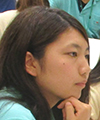 |
Mai Sato Department of Nursing, Nagoya City University (Graduate of Ofunato High School, Iwate Prefecture) Mai lost her home in Rikuzentakata City in the Great East Japan earthquake. She joined BEYOND Tomorrow in tenth grade. There, she was able to talk about her experiences with the disaster for the first time, and when she found that the people around her were intently listening, she realized how much she needed to tell these stories, and how much she needed others to listen. From this moving experience, she decided to apply for the BEYOND Tomorrow Fellows Program, where she can continue to broaden her views and deepen her understanding of the world. In the future, Mai would like to become a nurse, working to ensure that citizens of rural areas like Rikuzentakata still have access to excellent health care, and also helping to create a fully recovered, vibrant Rikuzentakata. |
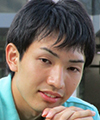 |
Mahiro Sawada School of Fundamental Science and Engineering, Waseda University (Graduate of Sendai Second High School, Miyagi Prefecture) Mahiro joined BEYOND Tomorrow since high school, and he strongly believes that, compared to his friends from school, the friends he made at BEYOND have a different presence about them, a stimulating presence that inspires him to deeply share experiences with them. After visiting Europe with BEYOND Tomorrow, he was inspired by the airline industry and how it continually advances by gathering knowledge and technology from around the world. In the future, he wants to work in airframe development. Mahiro decided to join the Fellow Program to follow the footsteps of the Fellows who supported him in tough times; he hopes to be a similar mentor to younger members of the program. |
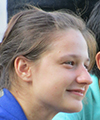 |
Ekaterina Steposhyna Kashii High School, Fukuoka Prefecture Ekaterina moved to Japan from Ukraine when she was nine years old, and since then, she struggled to assimilate to a new culture and environment. From this experience, however, grew her aspiration to be an entrepreneur and create an organization that supports foreigners in Japan. Her experience with BEYOND Tomorrow as a ninth grader expanded her views of the world, and she gained more self-confidence. She wanted to keep growing in this way, and decided to apply for the Fellows Program in order to face new challenges. She is now actively working as the student body council vice president and studying economics in hopes of pursuing an economics degree in college. |
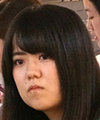 |
Nanami Takahashi College of Liberal Arts, International Christian University (Graduate of St. George’s School in Switzerland) Since joining immediately after the Great East Japan earthquake, Nanami sees BEYOND Tomorrow as a place where she finds hope and guidance when she feels like she is losing her way. Through her studies abroad in France and Switzerland, she grew in an environment ripe with diversity and intellect, and now has a new global appreciation, as well as language skills in French and English. In the future, she wants to support those in poverty or struck by natural disaster who cannot make a living on their own, so that they, too, can pursue a life of happiness. As a Fellow, Nanami would like to be a support for her peers who are distressed or are struggling. |
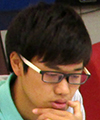 |
Daiho Nishioka Faculty of Agricutlure, Tottori University (Graduate of Katsura High School, Kyoto Prefecture) Daiho decided to study agriculture because he loves nature, but he soon learned of areas in the world where people are suffering in poverty because they cannot grow crops on their land for reasons such as salt accumulation. Hearing this, he decided to learn more about the world’s agriculture so that he can participate in agricultural projects that aim to support people around the world. Daiho also has experience as a high schooler in a national competition for his research in looking at agriculture from an environmental perspective. Moving forward, he wants to keep challenging himself and continually ask himself what he is meant to be doing at any given time so that he does not lose perspective. His goals is to contribute to creating agriculture that will lead to others’ happiness. |
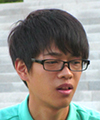 |
Eijiro Fukuda School of Policy Studies, Kwansei Gakuin University (Graduate of Momoyamagakuin High School) Though he grew up in a meager and poorly educated environment, Eijiro excelled in his soccer team in Kobe and was elected to go to the World Cup tournament in Germany when he was in grade school. Even as a high schooler, he led teams in Canada as a Japanese student, taking him to tournaments in the United States. He entered college to fulfill his dreams to improve relations between Japan and Asia by studying national security and environmental policy. He believes that if he carefully considers and fulfills his role in society, his efforts will lead to a more equal society and hopefully a better reality for future generations. |
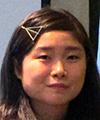 |
Emiri Matsufuji Faculty of Humanities and Economics, Kochi University (Graduate of Kochi Shogyo High School) Through her high school, Emiri participated in a project that to build a school in Laos. While she was there visiting the site, she began a collaboration between her home prefecture of Kochi with Laos, by suggesting that the Vientiane provincial government produce the imo-kenpi (candied sweet potato) and ginger sweets that are local products of Kochi Prefecture. From this experience, Emiri was inspired to pursue a job that allows her to be a bridge between Japan and the world. Her dream is to be a teacher, and towards that she plans to get a teaching license in Japanese and in English. She would also like to be in a business that shares with the world the amazing things that Kochi Prefecture has to offer. |
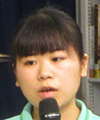 |
Naho Yamazaki Department of Literature, University of the Sacred Heart (Graduate of Morioka Daishi High School, Iwate Prefecture) Naho lost her grandfather and grandmother in the tsunami. That experience led her to feel that she must live life to the fullest, enough to make up for those who were lost, and that she must make the most of opportunities that arose in her life. She wants to feel like she has given 100% to living life and not be afraid of failing; she wants to tackle the challenges that lie ahead knowing that often there are opportunities behind those challenges that are just unknown right now. In the future, Naho wants to work in international finance and be involved in work not only in developed but also in developing nations. Through this, she wants to help those with potential move closer to achieving their hopes and dreams. |
List of participants in Asia Summer Program 2016 – South Korea –
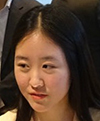 |
Go-eun Cha Dukmoon Girls High School Go-eun is from Pusan, where there are many festivals and tourists, and she is proud of the city’s dynamism and energy. She enjoys interacting with people, so in her spare time, she volunteers at Busan Social Welfare Center and work with elderly people. Go-eun likes children and hopes to become a teacher in the future. |
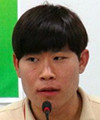 |
Min-tak Jean Seoul National University Min-tak is from Gwang-myeong city, where he and his family suffered from the redevelopment policy that forced many residents to move out in order for further urbanization. When Min-tak was in high school, his father fell ill and he lived away from his family. Though he had a hard time adjusting to the new environment, he believes that that experience made him a strong person. In the future, Min-tak wants to work in the field of education policy and make education in Korea a happy experience for all people. |
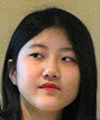 |
Ye-eun Jung Goyang Foreign Language High School Ye-eun is from Paju city just below the 38th parallel dividing the Korean Peninsula. In middle school, Ye-eun assumed the responsibility as a student honorary police officer, and through the experience, she feels that she gained important life lessons and developed judgment and discernment. In the future, she hopes to become a diplomat that can contribute to resolving issues between Japan and Korea. |
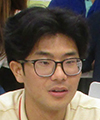 |
Hyoeng-tae Kim Myongji University When Hyong-tae was a child, Korea was hit by a severe financial crisis, and his father’s business went bankrupt. Hyong-tae and his family suffered from this incident, but he believes that this experience taught him that hardship can be a chance and made him a mature person. Currently, Hyoeng-tae is studying Japanese and would like to engage in cultural exchange activities in the future. |
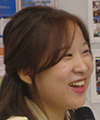 |
Min-su Kim Korea University Min-su spent her high school days in China, where she learned the joy of travelling and discovering new things. She has a keen interest in North-East Asia relations, in particular, how Korea could develop and sustain friendly relationships with China and Japan. Min-su hopes to become a diplomat in the future and work on various issues lying in the region. |
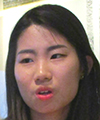 |
Da-yeon Lee Gyeongsang National University Da-yeon experienced difficulties getting along with classmates in her childhood, but she believes that through that experience she learned how to get to know people and deal with burdens as they appear. In the future, she hopes to become a teacher that can help others in pain and offer encouragement precisely because of her own experience of needing someone to rely on in difficult times. |
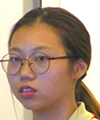 |
Ye-seul Lee Hangyang University Ye-seul is from Gongju city, the ancient capital of Baekje, and is looking forward to examining the history of Baekje with Japanese friends. Ye-seul wants to be a teacher in the future and teach not only the Japanese language but also help the students make meaningful contributions for Japan-Korea relations. By joining BEYOND Tomorrow summer program, Ye-seoul hopes to share many things with Japanese participants and tell her future students about her experience. |
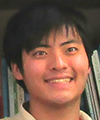 |
Hyung-suk Woo Sugkyunkwan Univesrsity When Hyug-suk was in high school, his family was placed in economic hardships, and he and his family had to move into a small apartment. Though he was not sure whether he could go to university, he was able to afford it with his relative’s assistance. Hyung-suk’s dream is to become a lawyer that can work on corporate affairs and also help vulnerable people in need. |
Program
Orientation in Tokyo
Japanese students participated in pre-departure orientation in Tokyo. During the program, the students discussed common social issues to Japan and Korea, and at the end of the program they gave presentations on what they hoped to learn through the experience in South Korea in English.
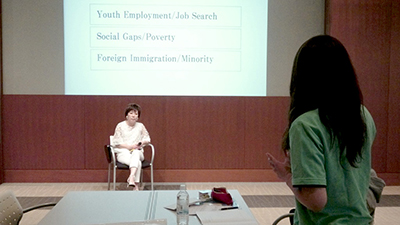
Orientation session with Professor Kim Gyeongju, Tokai University
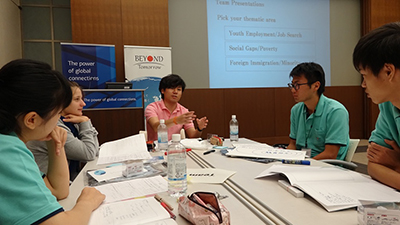
Group discussion about social issues in Japan and Korea
Korea Program
During the 8-day program in South Korea, students visited local institutions and had discussions with people active in the field of various social issues in Seoul, Daejeon, and Busan. It enabled them to reflect on what roles they could play to address these issues. Through interaction and discussion between Japanese students and Korean students, they developed strong ties.
Seoul
In Seoul, students had the opportunity to attend briefings about diplomacy and foreign migration issues etc., and gained insights on how to address those issues from a global perspective. Students also had discussions with families of Sewol victims and recognized the significance and difficulties of inheriting the tragedy.
On the last day in Seoul, Korean students attended a special session with Mr. Daijiro Hahimoto, Chairman of Global Fund for Education Assistance to exchange views frankly and informally about past, present, and future of Japan-Korea relations. At the interim presentation and reception held in Seoul was participated by numerous leaders in the field of politics, diplomacy, business and academia, and students made presentations about how they could collaborate to address various social issues that existed in both countries.
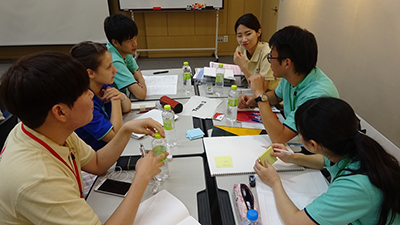
Orientation session in Seoul
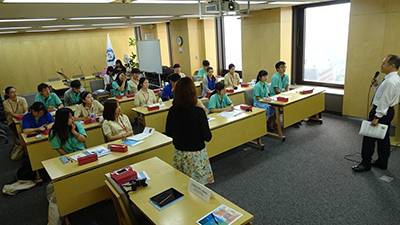
Visit to Trilateral Cooperation Secretariat
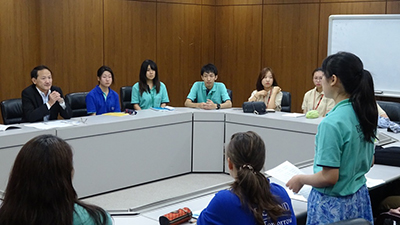
Session with Mr. Hideo Suzuki, Charge d’Affaires ad interim of the Embassy of Japan
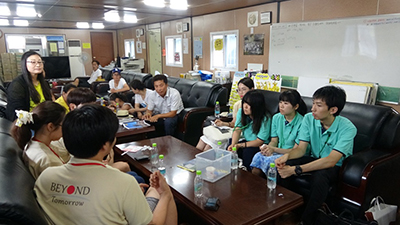
Students had dialogue with families of Sewol victims
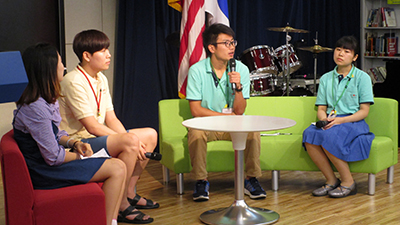
Session with Global Asia Leadership Forum (GALF) at Embassy of the United States and discussion about the future of youth in Japan and South Korea
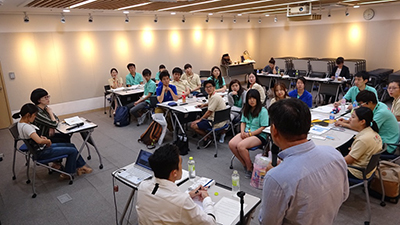
Students attend explanatory session from a local NGO that support foreign migrants in South Korea
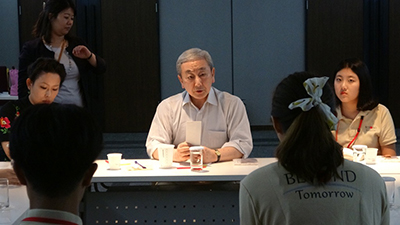
Korean students had a special session with Mr. Daijiro Hashimoto, Chairman, Global Fund for Education Assistance to discuss about the Japan-Korea relationship
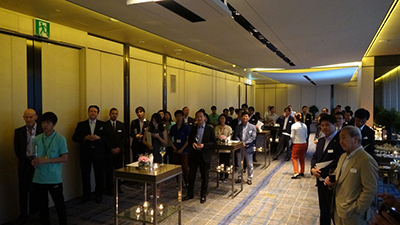
Students gave presentations about what they had gained from the program in Seoul to the leaders from area including politics, diplomacy, business, the academe, and international organizations
Daejeon
During the program in Daejeon, students visited heritage sites and unprivileged communities. They had discussion with people active in the field of social welfare and developed their understanding about local opinions
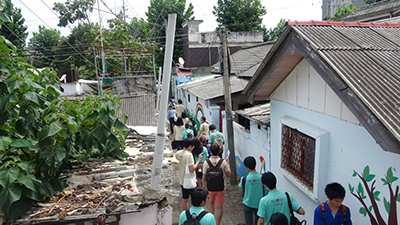
Visit to artist group that conducts various projects to revitalize architectural heritage site
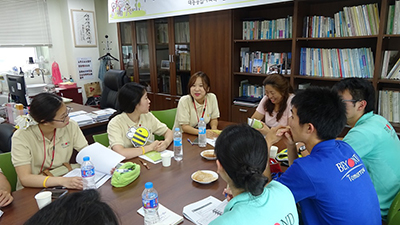
Visit to a local NGO that support underdeveloped communities
Busan
To conclude the 8-day program, the final presentation and closing ceremony was held at Busan University of Foreign Studies. Students developed proposals based on findings and learnings in three cities, and made presentations about how the youths could contribute to solve the social issues such as youth employment, social gap, and foreign migration.
After the closing ceremony, the students shared their thoughts and feelings with each other and nurtured trust as well as friendship.
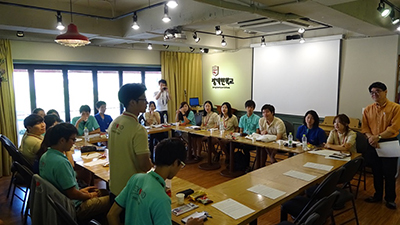
Visit to a school for North Korean defectors
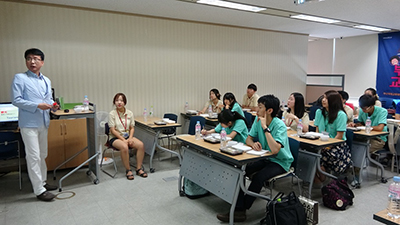
Students attended briefing session about tourism development in Busan
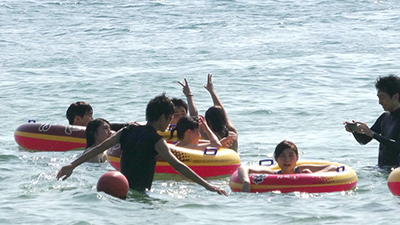
Beach activity at Haeundae beach
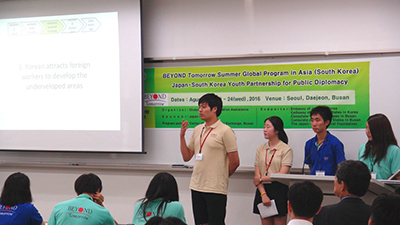
Students made presentations about what they could do to solve social issues common to Japan and Korea at the closing ceremony held at Busan University of Foreign Studies
Voice of the participants
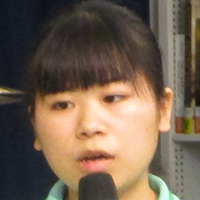
Having spent 8 days in South Korea, I felt very at home. I assume I was able to see the two countries’ relationship from a new angle and discovered a new world in front of me. I hope to share my experience in South Korea with friends.
Naho Yamazaki
University of the Sacred Heart
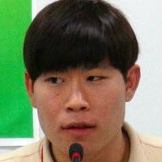
There were many things I learned but the most striking thing was the difference in our ways of thinking and doing. Even though we might seem different, we are actually the same in that we both care about people but in different ways. So I hope to build a constructive relationship between the two countries and pay respect to each other. In the future, I want keep in touch with the Japanese friends I met in this program and visit Japan to meet them again.
Min-tak Jean
Seoul National University
Partner
The Japan Foundation
Supporters
Embassy of Japan in Korea
Embassy of the United States in Korea
Consulate of the United States in Busan
The Japan-Korea Cultural Foundation
Program partner
Busan Center for Korea-Japan Exchange
